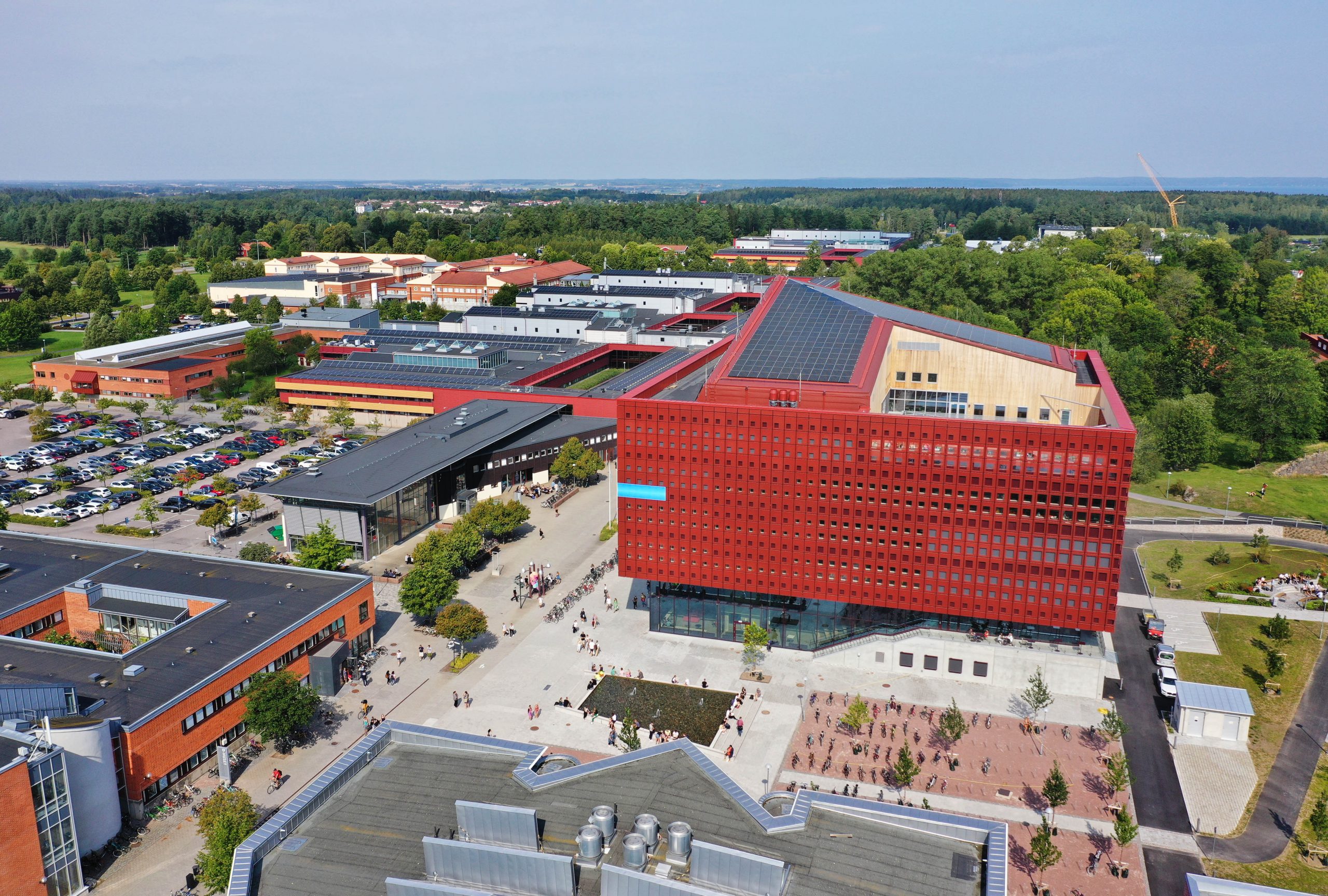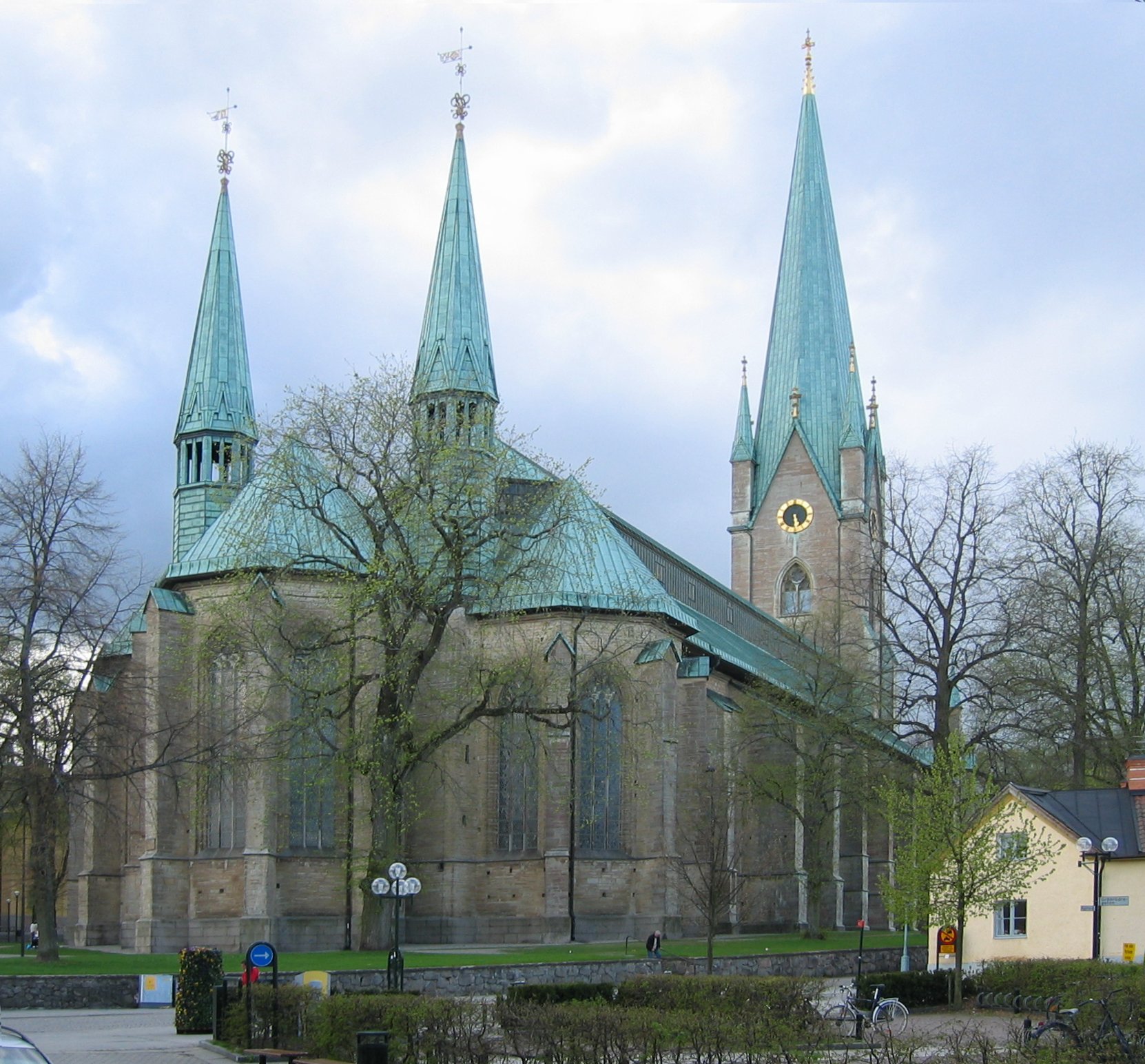|
Sven Widmalm
Sven Emil Widmalm is a Historian of Science and Ideas in Sweden, professor at the department of History of Science and Ideas at the University of Uppsala. Biography Sven Widmalm was awarded a Ph.D. in History of Science and Ideas in 1990 from Uppsala University. Between 2005 and 2011, he was Chair of the Swedish National Committee for History of Science and Technology. From 2005 to 2016 he was a member of the board of Uppsala University's Centre for Science and Technology Studies. Since 2006 he has been a member of the advisory board of the Centre for History of Science at the Swedish Royal Academy of Sciences. Between 2009 and 2011 he was Chair of the Unit for Technology and Social Change at Linköping University. From 2011 to 2016 he was Chair of the Swedish History of Science Society. Since January 2012 he has been a Fellow of the Royal Swedish Academy of Sciences. At present he is a fellow at three other royal academies in Uppsala. Since 2015 he has been a member of the Boar ... [...More Info...] [...Related Items...] OR: [Wikipedia] [Google] [Baidu] |
History Of Ideas
Intellectual history (also the history of ideas) is the study of the history of human thought and of intellectuals, people who conceptualize, discuss, write about, and concern themselves with ideas. The investigative premise of intellectual history is that ideas do not develop in isolation from the thinkers who conceptualize and apply those ideas; thus the intellectual historian studies ideas in two contexts: (i) as abstract propositions for critical application; and (ii) in concrete terms of culture, life, and history. As a field of intellectual enquiry, the history of ideas emerged from the European disciplines of '' Kulturgeschichte'' (Cultural History) and ''Geistesgeschichte'' (Intellectual History) from which historians might develop a global intellectual history that shows the parallels and the interrelations in the history of critical thinking in every society. Likewise, the history of reading, and the history of the book, about the material aspects of book production (des ... [...More Info...] [...Related Items...] OR: [Wikipedia] [Google] [Baidu] |
Sweden
Sweden, formally the Kingdom of Sweden,The United Nations Group of Experts on Geographical Names states that the country's formal name is the Kingdom of SwedenUNGEGN World Geographical Names, Sweden./ref> is a Nordic country located on the Scandinavian Peninsula in Northern Europe. It borders Norway to the west and north, Finland to the east, and is connected to Denmark in the southwest by a bridgetunnel across the Öresund. At , Sweden is the largest Nordic country, the third-largest country in the European Union, and the fifth-largest country in Europe. The capital and largest city is Stockholm. Sweden has a total population of 10.5 million, and a low population density of , with around 87% of Swedes residing in urban areas in the central and southern half of the country. Sweden has a nature dominated by forests and a large amount of lakes, including some of the largest in Europe. Many long rivers run from the Scandes range through the landscape, primarily ... [...More Info...] [...Related Items...] OR: [Wikipedia] [Google] [Baidu] |
Uppsala University
Uppsala University ( sv, Uppsala universitet) is a public university, public research university in Uppsala, Sweden. Founded in 1477, it is the List of universities in Sweden, oldest university in Sweden and the Nordic countries still in operation. The university rose to significance during the rise of Swedish Empire, Sweden as a great power at the end of the 16th century and was then given a relative financial stability with a large donation from King Gustavus Adolphus of Sweden, Gustavus Adolphus in the early 17th century. Uppsala also has an important historical place in Swedish national culture, identity and for the Swedish establishment: in historiography, literature, politics, and music. Many aspects of Swedish academic culture in general, such as the white student cap, originated in Uppsala. It shares some peculiarities, such as the student nation system, with Lund University and the University of Helsinki. Uppsala belongs to the Coimbra Group of European universities a ... [...More Info...] [...Related Items...] OR: [Wikipedia] [Google] [Baidu] |
Linköping University
Linköping University (, LiU) is a public research university based in Linköping, Sweden. Originally established in 1969, it was granted full university status in 1975 and is one of Sweden's largest academic institutions. The university has four campuses across three cities: Campus Valla and Campus US in Linköping, Campus Norrköping in Norrköping and Campus Lidingö in Stockholm. It is organized into four faculties: Arts and Sciences, Medicine and Health Sciences, Educational Sciences, and the Institute of Technology. In order to facilitate interdisciplinary work, there are 12 large departments combining knowledge from several disciplines and often belonging under more than one faculty. Linköping University emphasises dialogue with the surrounding business sphere and the community at large, both in terms of research and education. In 2021 the university was home to 35,900 students and 4,300 employees. It is a member of the European Consortium of Innovative Universities, as ... [...More Info...] [...Related Items...] OR: [Wikipedia] [Google] [Baidu] |
Royal Swedish Academy Of Sciences
The Royal Swedish Academy of Sciences ( sv, Kungliga Vetenskapsakademien) is one of the Swedish Royal Academies, royal academies of Sweden. Founded on 2 June 1739, it is an independent, non-governmental scientific organization that takes special responsibility for promoting natural sciences and mathematics and strengthening their influence in society, whilst endeavouring to promote the exchange of ideas between various disciplines. The goals of the academy are: * to be a forum where researchers meet across subject boundaries, * to offer a unique environment for research, * to provide support to younger researchers, * to reward outstanding research efforts, * to communicate internationally among scientists, * to advance the case for science within society and to influence research policy priorities * to stimulate interest in mathematics and science in school, and * to disseminate and popularize scientific information in various forms. Every year, the academy awards the Nobel Priz ... [...More Info...] [...Related Items...] OR: [Wikipedia] [Google] [Baidu] |
Lychnos (journal)
''Lychnos: Lärdomshistoriska samfundets årsbok'' () is an annual academic journal published since 1936 by the Swedish History of Science Society (''Lärdomshistoriska samfundet''; based in Uppsala and established two years prior to the publication of the first volume). Articles are mostly in Swedish, with summaries in English, German, or French. A number of volumes have also been published in a monograph series called ''Lychnos-bibliotek'' (), starting the same year as the periodical. History ''Lychnos'' and the society were both the brainchildren of Johan Nordström, since 1933 the first holder of a then-new professorship in the History of Ideas and Learning at Uppsala University. Nordström was an ardent popularizer and had the ambition to establish a periodical such as the American journal ''Isis'', published by George Sarton since 1912, and a society corresponding to Sarton's History of Science Society, founded in 1924 to support the continued publication of the journal. Sa ... [...More Info...] [...Related Items...] OR: [Wikipedia] [Google] [Baidu] |
History Of Science
The history of science covers the development of science from ancient times to the present. It encompasses all three major branches of science: natural, social, and formal. Science's earliest roots can be traced to Ancient Egypt and Mesopotamia around 3000 to 1200 BCE. These civilizations' contributions to mathematics, astronomy, and medicine influenced later Greek natural philosophy of classical antiquity, wherein formal attempts were made to provide explanations of events in the physical world based on natural causes. After the fall of the Western Roman Empire, knowledge of Greek conceptions of the world deteriorated in Latin-speaking Western Europe during the early centuries (400 to 1000 CE) of the Middle Ages, but continued to thrive in the Greek-speaking Eastern Roman (or Byzantine) Empire. Aided by translations of Greek texts, the Hellenistic worldview was preserved and absorbed into the Arabic-speaking Muslim world during the Islamic Golden Age. The recovery and ... [...More Info...] [...Related Items...] OR: [Wikipedia] [Google] [Baidu] |
Living People
Related categories * :Year of birth missing (living people) / :Year of birth unknown * :Date of birth missing (living people) / :Date of birth unknown * :Place of birth missing (living people) / :Place of birth unknown * :Year of death missing / :Year of death unknown * :Date of death missing / :Date of death unknown * :Place of death missing / :Place of death unknown * :Missing middle or first names See also * :Dead people * :Template:L, which generates this category or death years, and birth year and sort keys. : {{DEFAULTSORT:Living people 21st-century people People by status ... [...More Info...] [...Related Items...] OR: [Wikipedia] [Google] [Baidu] |
Linköping University Alumni
Linköping () is a city in southern Sweden, with around 105,000 inhabitants as of 2021. It is the seat of Linköping Municipality and the capital of Östergötland County. Linköping is also the episcopal see of the Diocese of Linköping (Church of Sweden) and is well known for its cathedral. Linköping is the center of an old cultural region and celebrated its 700th anniversary in 1987. Dominating the city's skyline from afar is the steeple of the cathedral, Domkyrka. Nowadays, Linköping is known for its university and its high-technology industry. Linköping wants to create a sustainable development of the city and therefore plans to become a carbon-neutral community by 2025. Located on the Östergötland Plain, Linköping is closely linked to Norrköping, roughly to the east, near the sea. History The city is possibly named after the '' Lionga ting'' assembly which according to Medieval Scandinavian laws was the most important thing in Östergötland. Exact location o ... [...More Info...] [...Related Items...] OR: [Wikipedia] [Google] [Baidu] |
Year Of Birth Missing (living People)
A year or annus is the orbital period of a planetary body, for example, the Earth, moving in its orbit around the Sun. Due to the Earth's axial tilt, the course of a year sees the passing of the seasons, marked by change in weather, the hours of daylight, and, consequently, vegetation and soil fertility. In temperate and subpolar regions around the planet, four seasons are generally recognized: spring, summer, autumn and winter. In tropical and subtropical regions, several geographical sectors do not present defined seasons; but in the seasonal tropics, the annual wet and dry seasons are recognized and tracked. A calendar year is an approximation of the number of days of the Earth's orbital period, as counted in a given calendar. The Gregorian calendar, or modern calendar, presents its calendar year to be either a common year of 365 days or a leap year of 366 days, as do the Julian calendars. For the Gregorian calendar, the average length of the calendar year (the ... [...More Info...] [...Related Items...] OR: [Wikipedia] [Google] [Baidu] |





